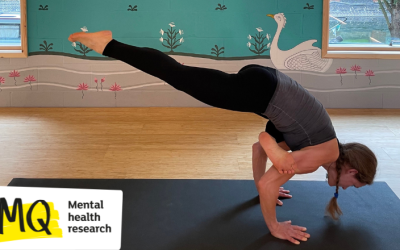It’s never easy losing someone you care about. Whether it’s a partner, family member, friend or even a public figure, grief can be devastating, especially during an emotionally challenging time.
On the 8th of September, the world lost Her Majesty the Queen, the longest-serving monarch in the United Kingdom’s history. On social media and in the press, many people are expressing surprise at how upset they are at the death of Queen Elizabeth II.
Grief is different for everyone, and there’s no correct or wrong way to deal with it. Most people would agree that dealing with loss can take a toll on your mental health, with sadness, anger, loneliness, and hopelessness being common emotions that people experience during the grieving process. These emotions can vary in severity, but for some people, they may be overwhelming.
In some cases, grief may even lead to a state of depression. A study by Clayton (1990) found that 40% of the participants had a major depressive episode one month after being widowed. Thankfully, the study explains that the depression caused by grief decreased over time, and after one year, only 15% of the participants met the criteria for severe depression.
Eventually, most people can accept the loss of a loved one and begin to live a normal life again. The acceptance process is different for everyone; some people may take longer to get there than others. Here are a few tips that can help the grieving process, which is backed by science:
1. Support people going through the grieving process
Going through grief alone can be highly challenging for most people. Zisook et al. (1990) found that people dealing with grief alone were more likely to suffer significant and relatively severe anxiety.
According to research by Parkes (1998), spending time with loved ones of the deceased can help everyone cope. These small efforts can make a big difference to some, whether it’s sharing stories or listening to your loved one’s favourite music. The added benefit is also making yourself feel better through helping others.
Parkes explains that ‘we can often reassure them of the normality of grief, explain its symptoms, and show by our own behaviour and attitudes that it is permissible to express grief. If we feel moved to tears at such times, there is no harm in showing it. Bereaved people may need reassurance that they are not going mad if they break down, that the frightening symptoms of anxiety and tension are not signs of mortal illness, and that they are not letting the side down if they withdraw, for a while, from their accustomed tasks.’
2. Seek professional help
Although it can be difficult to admit, if you are struggling to move past your grief, you should seek the help of a professional. This support can come from therapists, helplines like the Samaritans, or even dedicated support groups.
According to the American Psychological Association, psychotherapy is effective for various mental and behavioural health issues. The average effects of psychotherapy are more significant than the effects of some medical treatments.
3. Don’t feel guilty
Grief affects us all differently. Although it may seem that others may be able to progress quicker or slower than you, grieving can be a particularly individualised process. Li et al. (2019) found that higher levels of guilt were associated with complicated grief, with these symptoms lasting over two years after a death.
It can be normal to feel guilty, but it is best to remember that the loss you have experienced is not your fault. If your feelings of sadness and pain start to fade, it doesn’t mean that you no longer care. You are allowed to begin to live your life again without feeling that you no longer care for the person you lost.
Death is the final stage in life and is often surrounded by culturally specific rituals to assist people in their expression of grief during mourning. These culturally unique rituals and mourning practices can range from particular events before a funeral to public celebrations of a person’s life. According to Kagawa-Singer (1998), these rituals ‘provide a sense of security and coherence as well as the emotional, social, and physical resources to navigate this final journey with integrity and peace of mind.’
The grieving process can be challenging, so allowing yourself the time and grace to heal will ultimately benefit you.
If you are struggling to cope, please call Cruse for free on 0808 808 1677 (UK), talk to them in via webchat or visit the Cruse website to learn how they can support you.



